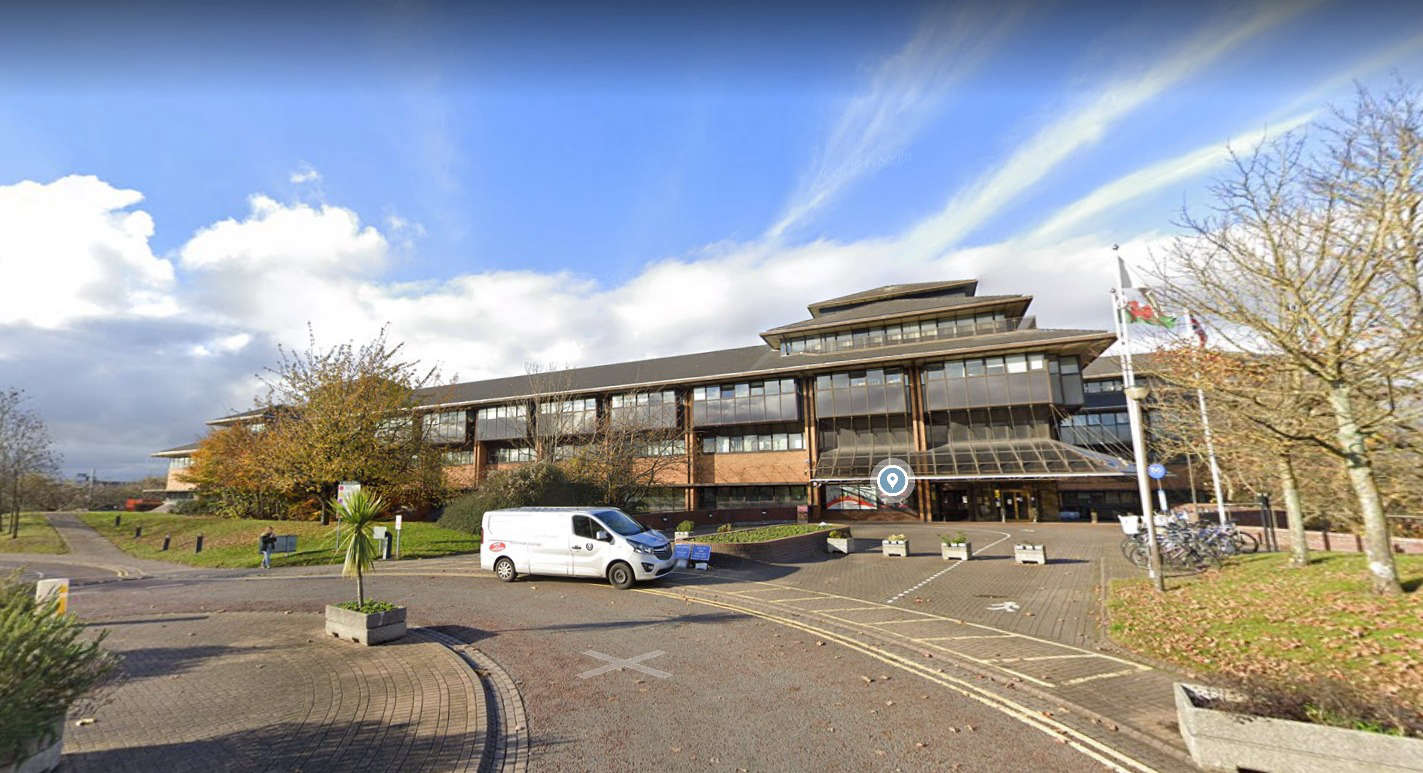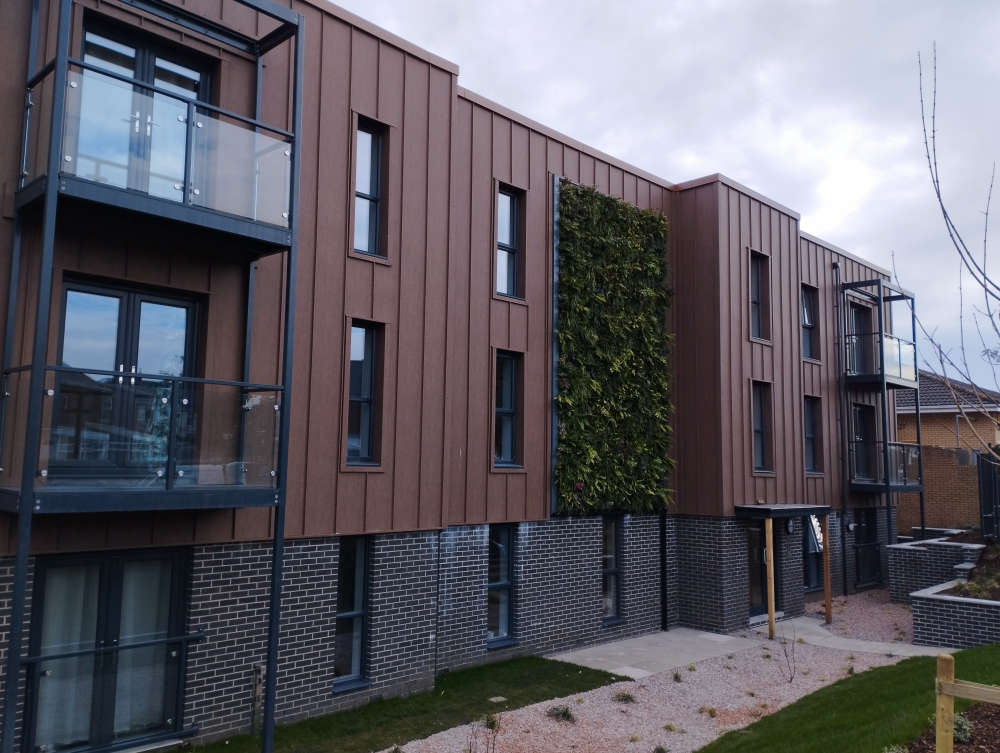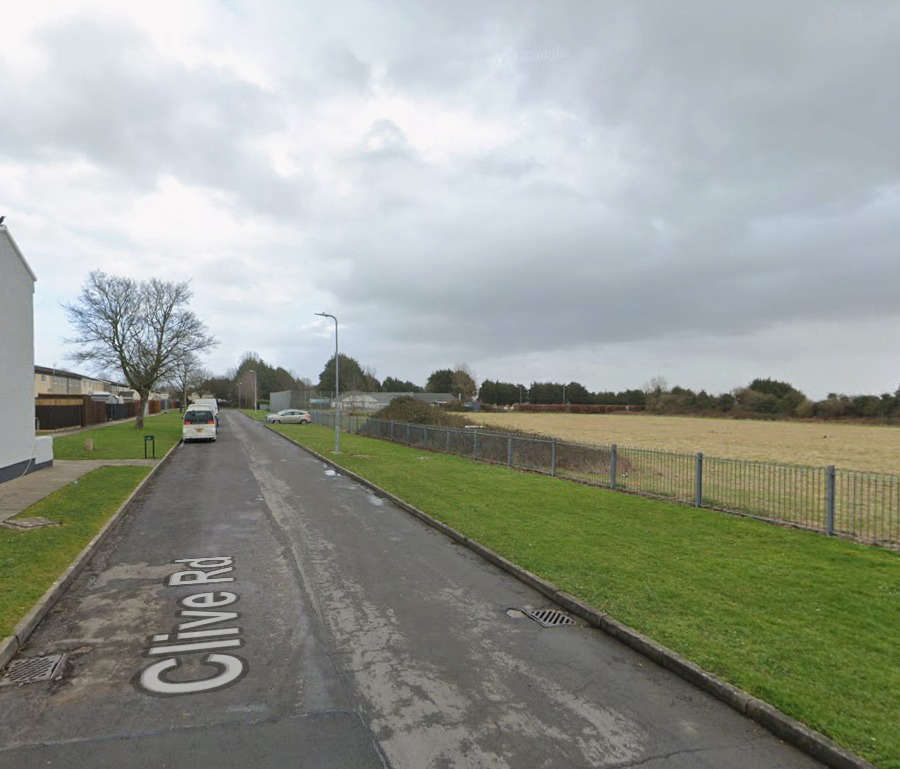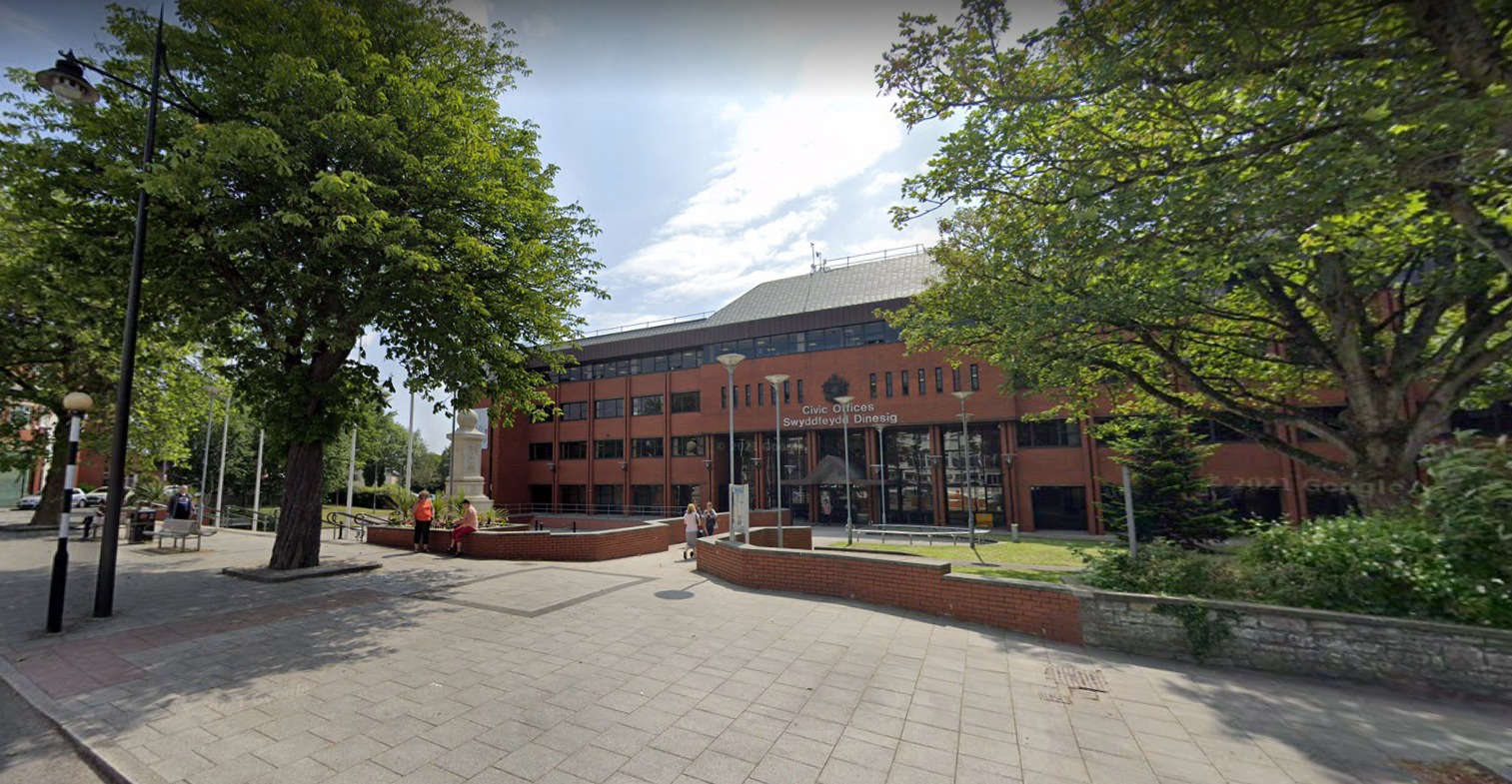
Cardiff Council looks set to go ahead with plans to knock down County Hall in favour of building a new, smaller headquarters nearby.
The leader of Cardiff Council, Cllr Huw Thomas, said the cost of refurbishing the current building at Atlantic Wharf, which was constructed between 1986 and 1987, would have cost in excess of £100 million.
He also said the maintenance and running costs of the building, which has a maximum capacity of about 3,000 people but only has an average of about 400 people using it daily, are significant.
About six months ago, fixing a leak at the front of the building cost £105,000 to the local authority.
The decision also comes at a time when Cardiff Council has been accused of losing control of its budget as it faces a projected overspend for this year of £8.8 million.
Cllr Thomas said: “The pressure we are facing financially absolutely compel us to put a long-term solution in place to secure our core office requirements in a cost effective way and that is exactly what this proposal does."
“It secures certainty of costs going forward, it avoids a huge maintenance backlog, it avoids the risk of catastrophic failure in our current office estate and it allows the council also to meet its carbon neutral aspirations and its economic regeneration requirements."
"So, yes there is some cost entailed, but it is avoiding an awful lot more cost."
“Some of those overspends, in fact most, come from unexpected events… and a significant risk that we are carrying is an unexpected event happening to our core office in terms of maintenance bills and maintenance liabilities, so why wouldn’t we take the prudent decision to avoid those risks by investing in a new core office?”
The council will make a recommendation to cabinet members at a meeting next Thursday (24th October) that they approve the appointment of a successful bidder following a procurement process for the construction of the new office.
As part of the council’s plan, the new building would be built on land in front of County Hall and the old office wouldn’t be demolished until this was completed and ready for people to move into. It would be about one third of the size of County Hall.
The demolition of County Hall would create space for about five plots, opening up opportunities for the land to be used for social housing and private offices.
Cardiff Council announced in June last year that its preferred strategy for the future of County Hall was to demolish the current building and replace it with a smaller one.
Cabinet members at the council eventually gave the go ahead for a full business case to be developed on the future use of its core office space, which includes City Hall, on June 22nd.
The decision to build a new office will mean the council will no longer use the office space at City Hall, but it will continue to hold full council meetings there once maintenance work is completed.
The council said it was unable to reveal how much in borrowing the construction of the new building will cost, but it is estimated to be about half of what it would cost to refurbish County Hall.
It was reported in January this year that Cardiff Council had the highest level of debt out of all the local authorities in Wales, at £858 million.
A Cardiff Council report published the following month showed that the local authority’s borrowing for housebuilding and other major projects was set to increase by millions of pounds.
The report showed additional borrowing for house building to be in excess of £400 million from 2024/25 to 2028/29.
When asked why the council didn’t opt for alternative solutions, like using existing office space in the city, Cllr Thomas said: “Because it doesn’t exist at the scale that we need it to and certainly we wouldn’t be getting a bespoke design."
“We wouldn’t be benefiting from the economic regeneration opportunities that this solution delivers, but actually in terms of cost savings you wouldn’t be gaining anything because you would be paying top dollar in rent for a grade A office in another part of town."
“For those three reasons, really it is not a viable option. We also looked at using that as a temporary option, but actually if you had that as a temporary option but ultimately looked to build a new building down the line, well…for every year you delay building a new building, you are accumulating about £3m per year of inflationary costs.”
After Cardiff Council announced that its preferred option for the future of County Hall was to demolish it, a national charity that campaigns for the future protection of modern British buildings called for it to be preserved.
At the time, Twentieth Century Society (C20) urged the council to explore options for a retrofit scheme and said the large scale demolition of County Hall would come at an “enormous carbon cost”.
The potential environmental cost of knocking down County Hall was also picked up on by Cardiff Civic Society.
In a blog post from June 2023, Cardiff Civic Society said they were “far from convinced by [Cllr Russell] Goodway’s insistence that knocking it down will save more carbon than repurposing it.”
Cllr Thomas said: “That [environmental impact] has been looked at in significant detail and there is a carbon cost in terms of the construction, but there would be a carbon cost in refurbishing this building as well."
“The key point really here is that we are moving from a very large building to one that is just over a third of the size."
“When it comes to the whole life carbon impact, the new build delivers an overall projected saving of approximately 23,000 tonnes of CO2 and that is compared with refurbishing the existing building."
“It will be net zero in its operation, potentially the first net zero office space anywhere in the city, and that is a key element of allowing us to hit our One Planet Cardiff ambition."
“Because you are then moving into a smaller footprint, it is the most carbon efficient option as well rather than refurbishing.”
The ‘Cardiff Live’ proposal will stand alongside the new indoor arena, the council’s new offices, a new 40,000sq ft event hall to complement the indoor arena, and the Capella Production Studios which will provide space for the Wales Millennium Centre to create their own content.
If cabinet gives its approval for the council to go ahead with its plans, the next steps would involve the local authority entering into a pre-contract service agreement (PCSA) to develop detailed designs and to finalise all costs including the cost of remediating the ground.
This would be followed by the finalisation and approval of a development agreement by May 2025.
Prior to the Cabinet meeting, the report on the future of County Hall will be scrutinised by the council’s policy review and performance committee next Thursday.




 Teenager bailed after Penarth disturbance
Teenager bailed after Penarth disturbance
 Three youths arrested after Penarth assault
Three youths arrested after Penarth assault
 CCTV appeal after Barry robbery
CCTV appeal after Barry robbery
 Barry: three men jailed in shoplifting crackdown
Barry: three men jailed in shoplifting crackdown
 Cardiff Bay connects to heat network
Cardiff Bay connects to heat network
 Two boys guilty of Kamran Aman murder
Two boys guilty of Kamran Aman murder
 Man's body found in Barry Dock
Man's body found in Barry Dock
 Another successful year for Santa's Cause
Another successful year for Santa's Cause
 Council set to relaunch petitions scheme
Council set to relaunch petitions scheme
 Two men questioned after A48 collision
Two men questioned after A48 collision
 Candlelighting held at Barry chapel
Candlelighting held at Barry chapel
 Power tools found in stolen vehicle
Power tools found in stolen vehicle
 Engineering works to hit Christmas trains
Engineering works to hit Christmas trains
 Council sets out future housing plans
Council sets out future housing plans
 Joint police and fire control room criticised
Joint police and fire control room criticised
 Costs rise for new Cowbridge school
Costs rise for new Cowbridge school
 St Athan: plans to build 51 new council homes
St Athan: plans to build 51 new council homes
 Vale Council to continue tax premiums
Vale Council to continue tax premiums










